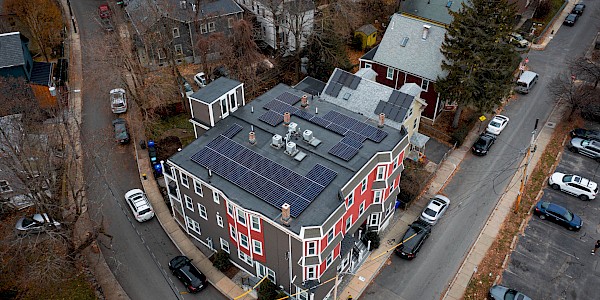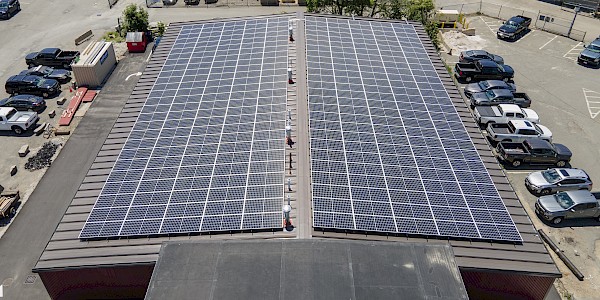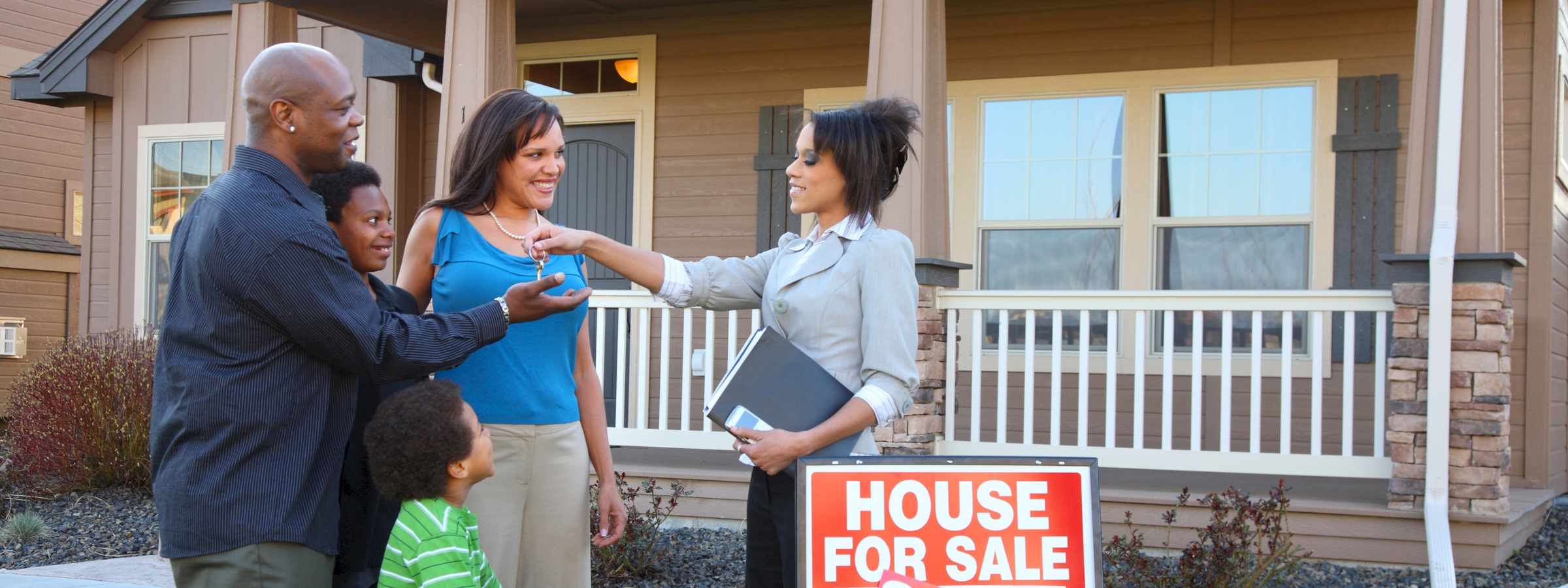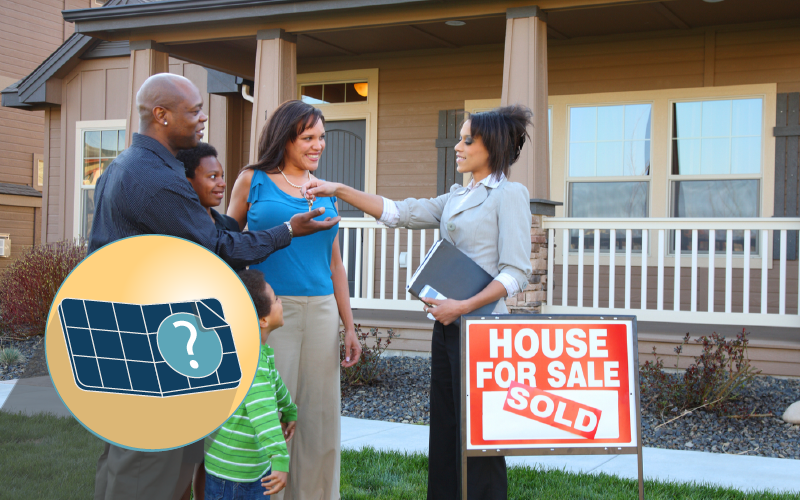What Happens When You Sell or Buy a Home with Solar Panels
Jun. 05, 2019
Solar is an important investment you make in your home and offers long term benefits like significantly lower electricity bills, reduced reliance on fossil fuels, and protection from rising energy prices. But what if you decide to sell your home after installing solar panels on your roof or property? Will solar still be a good thing for your bottom line? And what if you are looking to purchase a home that already has a solar PV system installed?
The good news is that the benefits of solar kick in immediately, and solar panels can lend a significant boost to home resale value. So, if you are considering installing solar but may sell your home in the near future, solar is still likely to increase your bottom line. Similarly, if you are a home buyer, buying a house with solar panels allows you to tap into the benefits of solar as soon as you move in.
In this article, we’re exploring some of the most common questions our customers in Massachusetts ask about selling or buying a home with solar.
How Do Solar Panels Affect Home Resale Value?
A number of studies have demonstrated the positive impact that solar panels have on home resale value. According to a recent Zillow report, homes with solar panels sell on average for 4.1% more than comparable homes without solar across the US. A study conducted by Berkeley Lab, also found that homes with solar panels tend to sell faster than those without.
One of our own customers saw similar benefits when she decided to sell her house two years after installing a solar energy system. During the two years she had solar panels on her home, her system almost eliminated her electricity bills. Then, when she sold her house, the house sold for $16,000 more than the expected selling price.
What If I Financed My Solar PV System with a Solar Loan?
Purchasing a solar PV system with a solar loan allows you to own your system while paying the cost over time. With a solar loan, you still have access to the benefits that come with purchasing and owning a solar power system, like the 30% Federal Solar Tax Credit and Massachusetts SMART incentives.
Should you decide to sell your home during your solar loan term, you have a couple options depending on the type of loan:
-
If you financed your solar PV system with a secured loan, such as a home equity loan, you will need to pay off the rest of the balance before you sell (since your property was used as collateral for the loan.)
-
If you financed your solar PV system with an unsecured loan (one that is not tied to your property), you can sell your home before paying off your loan — but you will still be responsible for paying off the loan.
Whichever route you take, keep in mind that your home will likely command a higher selling price because it has solar panels; so you can likely pay off the loan with that additional revenue.
What If I’m Selling a Home with a Leased Solar PV System?
Many homeowners wonder what will happen if they choose to install a leased solar PV system and then sell their home before the end of the lease term. (We go into further detail about leasing vs. owning a solar PV system on our solar financing page.) Generally, you have two options when selling a home with leased solar panels:
-
Pay the rest of the lease. Buying out the remainder of your lease allows you to own your solar energy system before you sell your home. That way, you can sell the system as part of the home and command a higher selling price.
-
Transfer the lease to the new homeowner. This option allows you to transfer the lease agreement to the new homeowner’s name. While of course some home buyers out there may not feel ready to take over a solar lease, studies have found that many are willing to assume a solar lease.
Can I Buy a House with Solar and Remove the Panels?
If you’re considering buying a home but do not wish to keep the solar panels, you have a couple options. First, you may ask the home seller to remove the panels. Of course, the home seller may or may not choose to do this. Your other option is to speak with the solar company that installed the panels and see how much it would cost to move or relocate the panels.
One important thing to remember here is that purchasing a solar home allows you to start enjoying the benefits of solar, without you having to navigate the installation process. So, if you really wish to remove the solar panels from a home you are purchasing, be sure you understand the full benefits of solar first.
Learn More About Selling or Buying a Solar Home
The main takeaway for homeowners here is that you should not feel forced to pay high utility bills just because you think you may move in the next 25 to 30 years. If you are a home buyer, keep in mind that purchasing a solar home is simpler than you may think — and offers significant financial benefits as soon as you move in.
If you have questions about selling or buying a solar home, get in touch with the team at Boston Solar. With over 3,800 solar installations under our belt, we know a thing or two about solar real estate — and we’ve seen how solar panels can affect a homeowner’s bottom line.
___________________________________________________________________________
Interested in installing solar but have questions about what will happen when you sell your home? Have questions about buying a home with solar panels? Call 617-858-1645 or contact us today to talk to Massachusetts’ local solar expert!




